When it comes to healthcare, understanding your rights as a patient is just as essential as knowing your responsibilities. Navigating the world of medical care can be overwhelming, but being informed empowers you to advocate for yourself and make educated decisions. From the right to privacy to the responsibility to provide accurate information, these guidelines are designed to foster a respectful and productive relationship between you and your healthcare providers. Curious to learn more about how you can protect and enhance your healthcare experience? Continue reading!

Clarity of Language
Patient rights and responsibilities serve as essential guidelines in healthcare, ensuring transparency and understanding of obligations within medical institutions. Clear communication is vital, with documents provided in straightforward language, avoiding medical jargon that may confuse patients. Access to information includes rights such as receiving respectful care, participating in treatment decisions, and maintaining confidentiality regarding personal health data. Responsibilities encompass being respectful to healthcare providers, providing accurate medical histories, and adhering to treatment plans. Utilizing patient-friendly materials, including brochures and digital platforms, facilitates informed consent and active involvement in one's own healthcare journey.
Legal Compliance
Patients' rights encompass essential legal protections such as the right to informed consent, ensuring individuals understand treatment risks (which can vary significantly by procedure) before agreeing. Effective communication between healthcare providers and patients is critical in preserving this right, with clear explanations often provided in languages most understood by patients. Privacy regulations, like the Health Insurance Portability and Accountability Act (HIPAA), guarantee confidentiality regarding medical records and personal health information. Additionally, patients are empowered to voice complaints or concerns without fear of retaliation, fostering an environment of safety and trust. Responsibilities, including adhering to treatment plans and respecting staff, are equally important, as they contribute to a collaborative atmosphere aimed at achieving optimal health outcomes.
Patient-Centered Focus
Patient rights encompass the ethical principles that ensure respect, dignity, and autonomy during healthcare experiences. Each patient has the right to receive clear communication regarding their diagnosis, treatment options, and potential risks involved, fostering an understanding of their own health journey. Patients are entitled to compassionate care delivered by qualified professionals in a supportive environment tailored to individual needs. Privacy and confidentiality are fundamental, protecting sensitive information within healthcare settings like hospitals or clinics. Alongside these rights, patients share responsibilities, including providing accurate health information, adhering to treatment plans, and engaging actively in their own care. This mutual respect between healthcare providers and patients enhances the quality of outcomes in diverse medical settings.
Accessibility and Inclusivity
Patients have the right to access healthcare services without barriers, ensuring equitable treatment regardless of their socioeconomic status, race, gender, or disability. Inclusivity mandates that healthcare facilities, such as hospitals and clinics, comply with the Americans with Disabilities Act (ADA) by providing necessary accommodations, like wheelchair ramps and accessible restrooms, to enhance the experience for individuals with mobility challenges. Effective communication strategies, such as offering translation services or materials in multiple languages, are essential in promoting understanding. Additionally, healthcare providers must prioritize cultural competence, recognizing and respecting diverse cultural beliefs and practices that may affect patient care. In fostering an inclusive environment, the healthcare system not only enhances patient satisfaction but also improves health outcomes and encourages community trust.
Cultural Sensitivity
Cultural sensitivity is essential for healthcare providers to ensure respectful and effective communication with patients from diverse backgrounds. Healthcare facilities, such as hospitals or clinics, should promote an environment that acknowledges and respects cultural differences. Specific practices include providing language services for non-English speakers, offering dietary accommodations that meet religious or cultural needs, and understanding cultural beliefs concerning health and illness. Sensitivity training programs for healthcare staff can improve interactions with patients, enhancing trust and compliance. Moreover, respecting cultural customs, such as family involvement in decision-making processes, can lead to more patient-centered care and improved health outcomes.
Letter Template For Patients' Rights And Responsibilities Samples
Letter template of Acknowledgment of Patients' Rights and Responsibilities
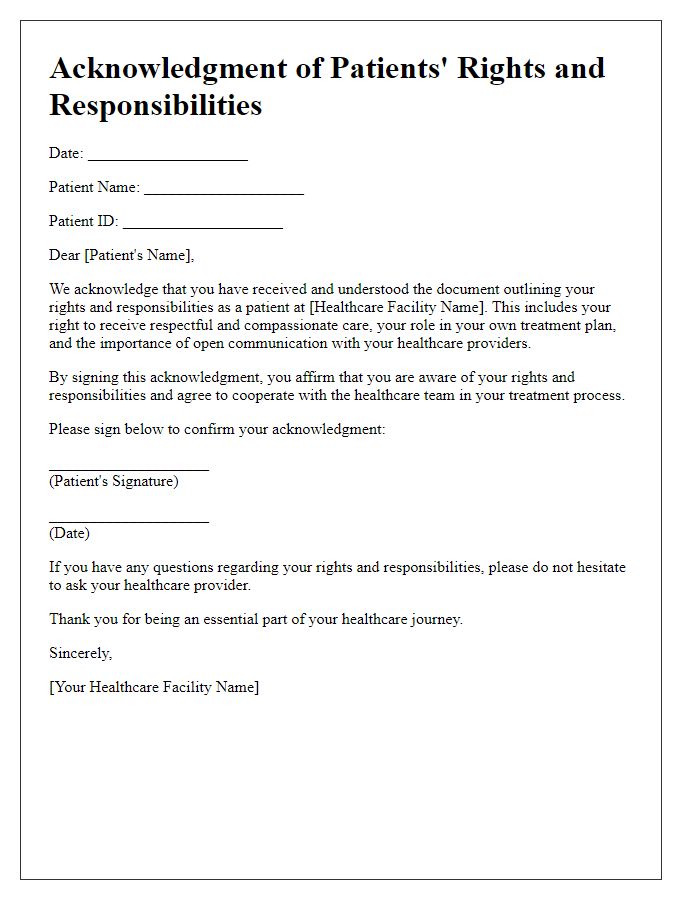
Letter template of Patients' Rights and Responsibilities Compliance Notice
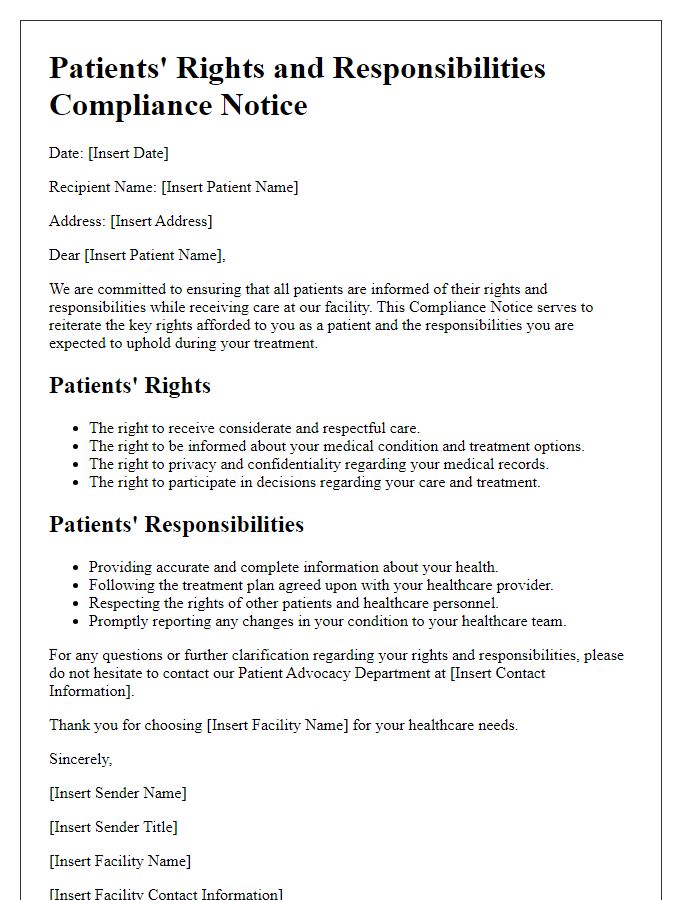
Letter template of Patients' Rights and Responsibilities Educational Materials
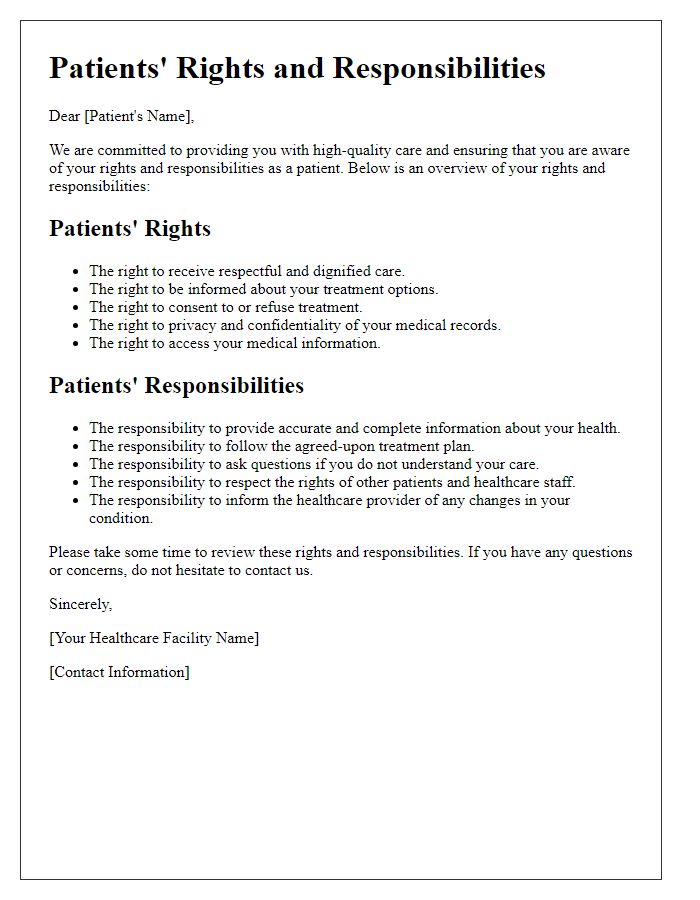
Letter template of Patients' Rights and Responsibilities Feedback Request
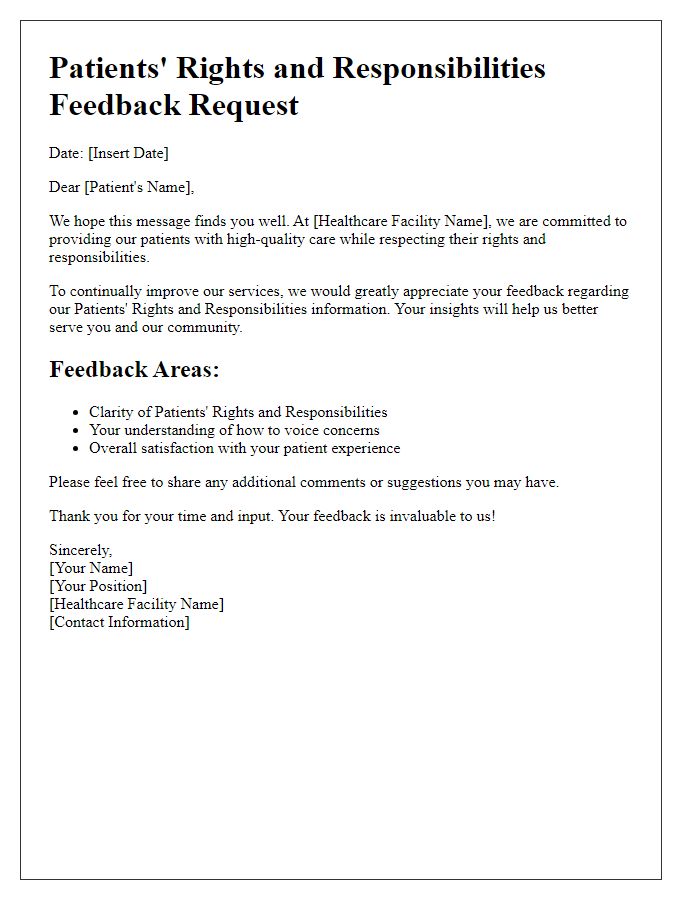
Letter template of Annual Review of Patients' Rights and Responsibilities
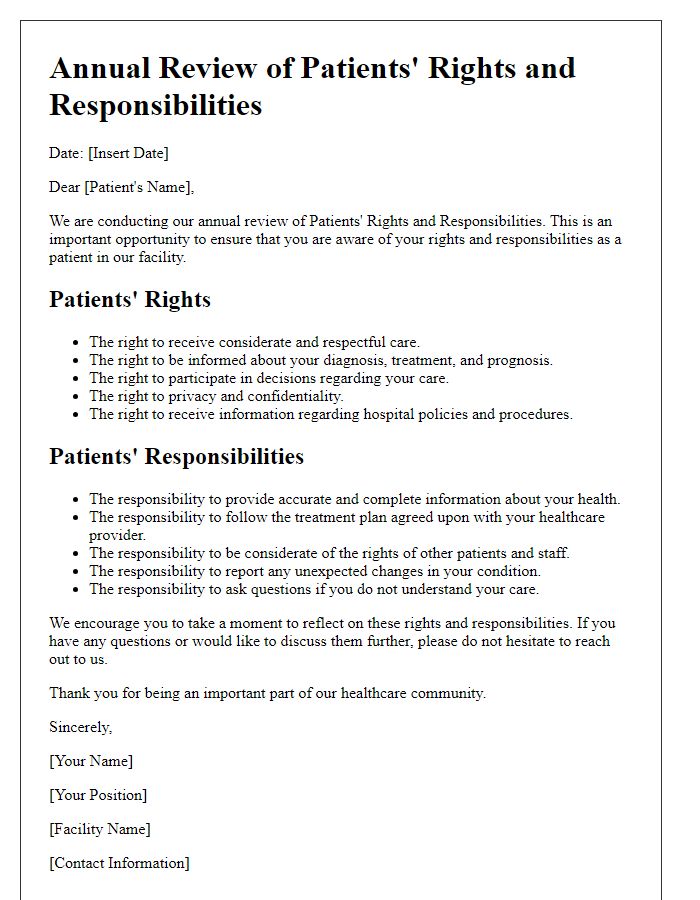

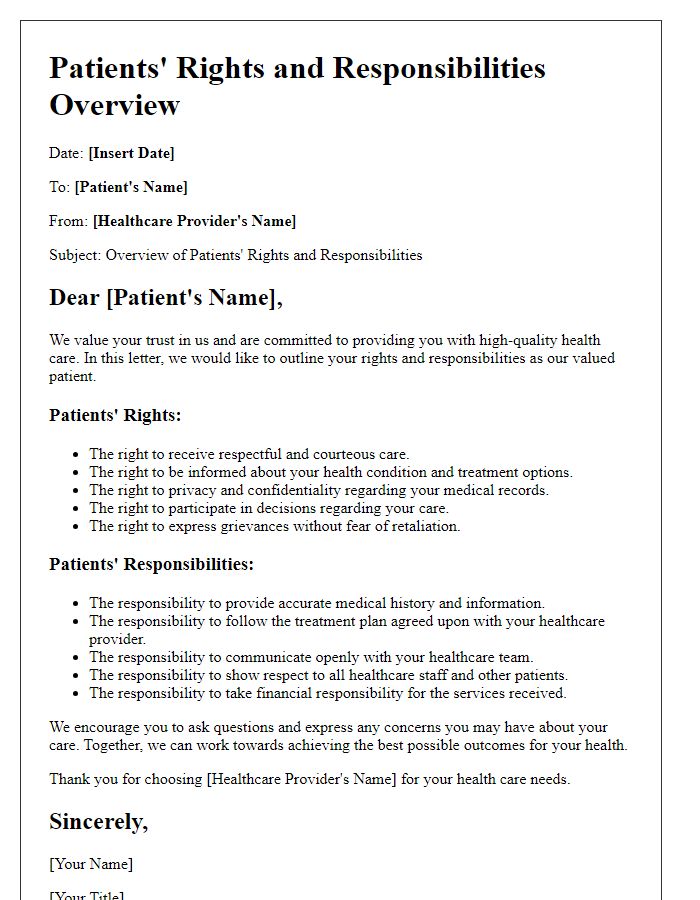
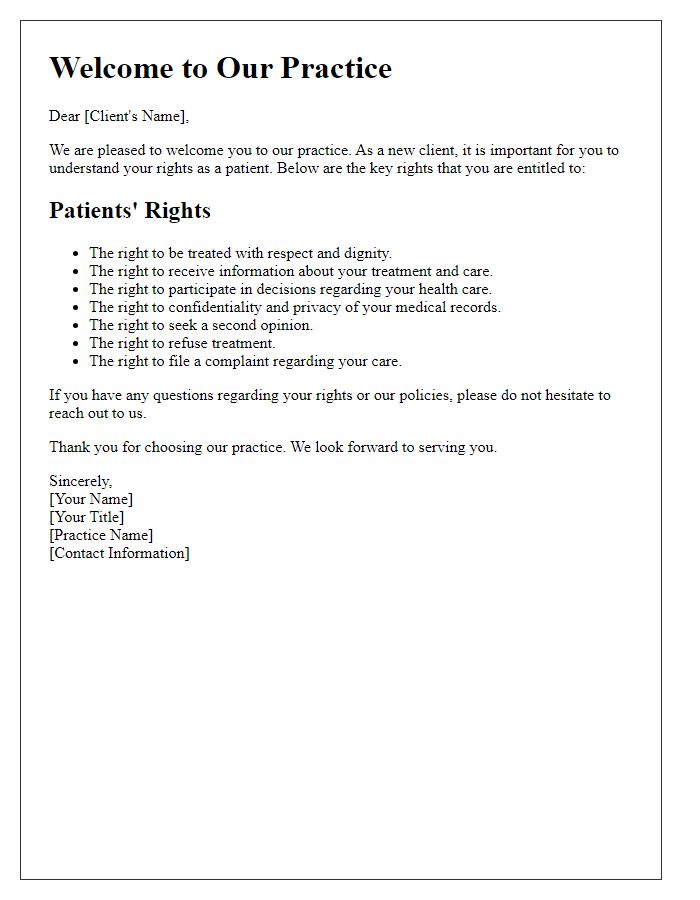
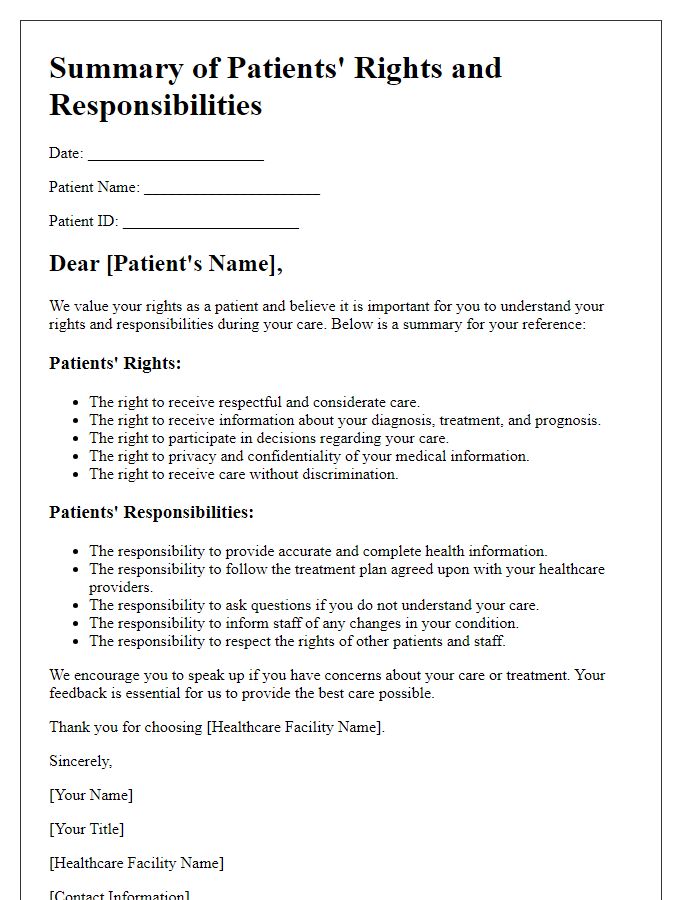
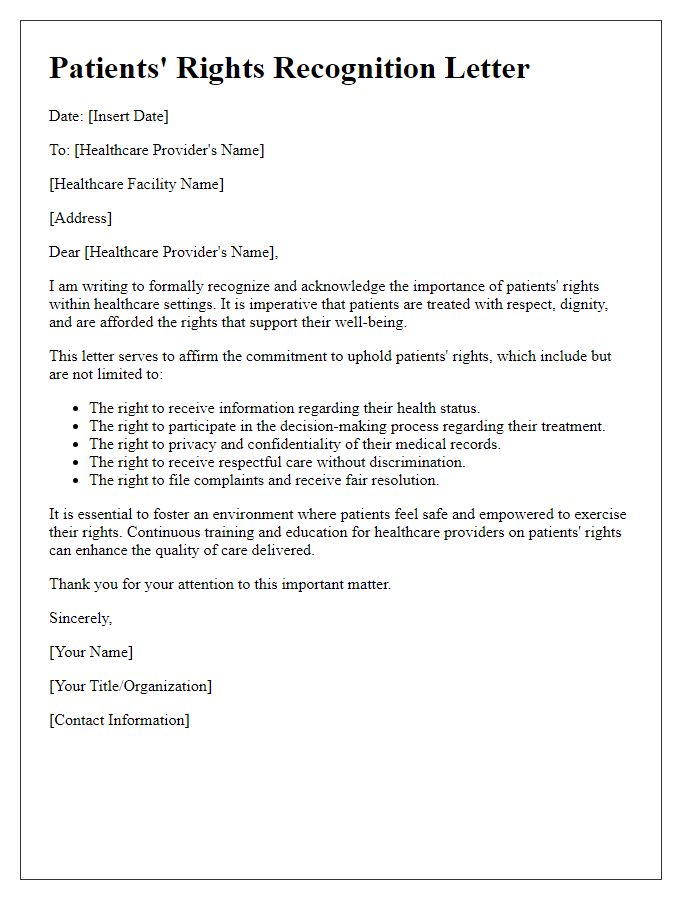
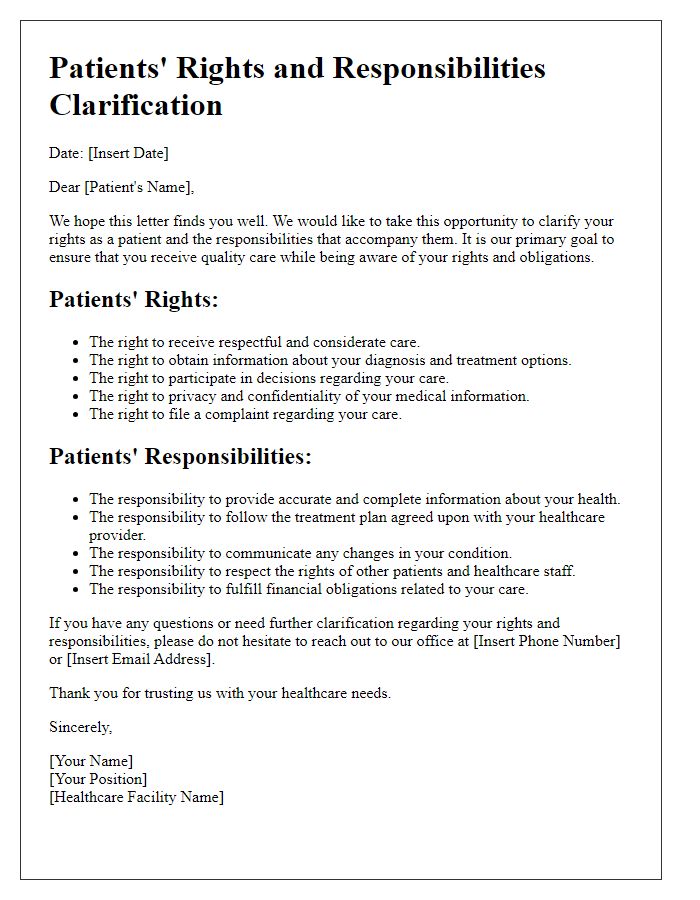


Comments